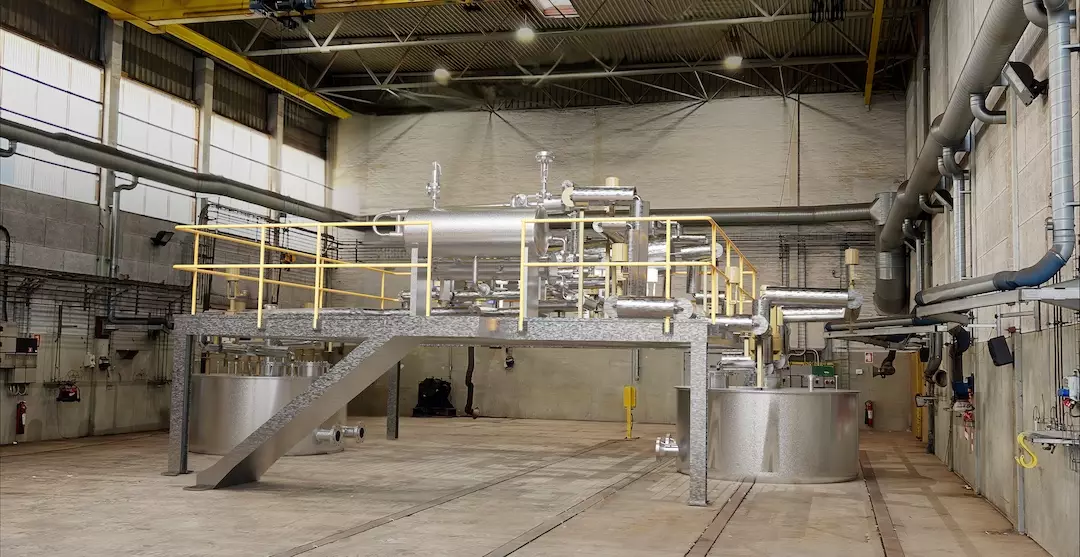As industries grapple with high energy costs and environmental regulations, the search for efficient energy storage solutions becomes increasingly urgent. Traditional lithium batteries, while popular, often fall short in many industrial applications. Their high costs, substantial space requirements, and potential over-specification make them less appealing for certain sectors. In contrast, thermal batteries present a compelling alternative, capable of storing energy in the form of heat for extended periods. This article delves into the emerging role of thermal batteries, highlighting a significant partnership between Hyme Energy and Arla Foods, and exploring the broader implications for industrial energy consumption.
Thermal batteries, particularly those utilizing molten salt, have gained traction due to their affordability and efficiency. One of the primary advantages of thermal storage systems is their capacity to store energy generated from renewable sources, converting it into heat that can be stored for later use. This is especially crucial for energy-intensive industries where steam generation is a significant component of the production process. By outsourcing energy storage to thermal batteries, companies can significantly reduce reliance on fossil fuels, thereby slashing their carbon footprint and aligning with global sustainability initiatives.
A recent strategic partnership between Denmark’s Hyme Energy and Arla Foods exemplifies the potential of thermal energy solutions. The collaboration aims to develop a large-scale thermal storage system for Arla’s milk powder facility in Holstebro, Denmark. With the proposed system designed to store 200 MWh of energy, the project indicates a fundamental shift towards sustainable energy practices in the dairy industry. By doing so, Arla seeks to entirely replace its fossil fuel use, targeting a 100% reduction in CO2 emissions associated with milk powder production. Hyme Energy’s focus is particularly salient, as co-founder Ask Emil Løvschall-Jensen expressed the company’s commitment to serving industries that require significant steam in the temperature range of 200 to 500 degrees Celsius.
The viability of thermal battery technology hinges not only on its immediate benefits but also on its scalability. Løvschall-Jensen asserts that scaling up should not be an issue, as there are no constraints on the production of the storage medium. However, the pressing question remains: how rapidly can this technology spread across Europe to meet the surging industrial energy demand? Capitalizing on collaborations with blue-chip suppliers and engineering, procurement, and construction (EPC) partners, Hyme seeks to ensure a swift rollout of its systems. This model enables the company to adapt and grow without the burden of manufacturing all components in-house, paving the way for quick expansion.
Investment Landscape and Future Prospects
As thermal storage technology gains momentum, the investment landscape is evolving. Despite a competitive venture capital environment that often favors software innovations, companies like Hyme Energy are beginning to find their footing in terms of funding. With prior funding rounds successfully raising approximately €25 million, Hyme is poised to pursue an additional €20 to €30 million in Series A funding. The broader market context reveals a robust interest in thermal battery startups—recent data indicates that industry players attracted over $170 million in venture capital in 2023, with expectations for even greater inflows in the upcoming year.
Emerging competitors in the thermal energy space further illustrate the potential for innovation. Companies like Electrified Thermal Solutions, Fourth Power, and MGA Thermal each offer unique technological solutions aimed at enhancing energy storage capabilities. For instance, Electrified Thermal Solutions utilizes a brick system imbued with the ability to convert electricity into heat, while Fourth Power focuses on high-temperature graphite blocks charged using renewable energy sources. Such diversity in approaches signifies a growing recognition of the necessity for sustainable energy alternatives.
The partnership between Hyme Energy and Arla Foods marks a significant step toward integrating thermal battery technology into mainstream industrial practices. As industries strive for sustainability, thermal batteries offer a viable pathway to meet energy needs while reducing environmental impact. By leveraging renewable energy sources and focusing on scalable solutions, companies can transition towards a greener future. The ongoing advancements in thermal energy technology promise to illuminate the path forward—one where industries can thrive sustainably, aligned with both economic and environmental objectives.

